9 Fruits That May Help Combat Constipation

Sure, everybody’s bowel movements are different. But, if you only experience two or three bowel movements a week then you’re probably suffering from constipation. Learn to combat constipation with the right diet.
The main causes of constipation are:
- Excess stress
- A sedentary lifestyle
- A diet low in fiber
- Diabetes
- Pregnancy
It can also be associated with other diseases such as colon cancer, diverticulitis, and hemorrhoids.
There are several treatments and easy ways to combat constipation.
One of the most effective ways to do it is to follow a diet rich in fruit. They contain different nutrients that accelerate the digestive system. And, they provide the body with lots of insoluble fiber.
Fruits that may help combat constipation
1. Pear
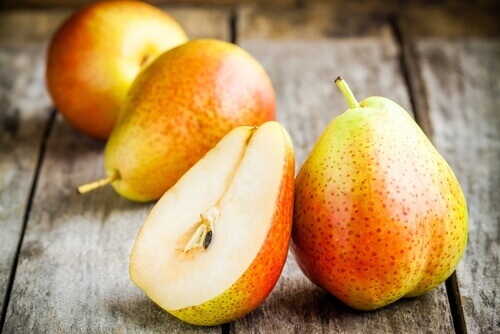
Because of their high water and fiber content, pears are a great regulator of intestinal movement.
- They help heal the digestive system, due to their anti-oxidant properties, and promote the elimination of high cholesterol.
- They also contain vitamins B, C and E, and minerals (iron, calcium, and potassium).
2. Tangerines
As one of the citrus fruits, tangerines are an excellent source of vitamin C and a natural way to combat constipation.
- They stimulate the formation of anti-bodies in the body to fight attacks from harmful agents.
- Tangerines have a high level of fiber. Therefore, they help prevent digestive problems, high cholesterol, and cardiovascular diseases.
3. Grapes
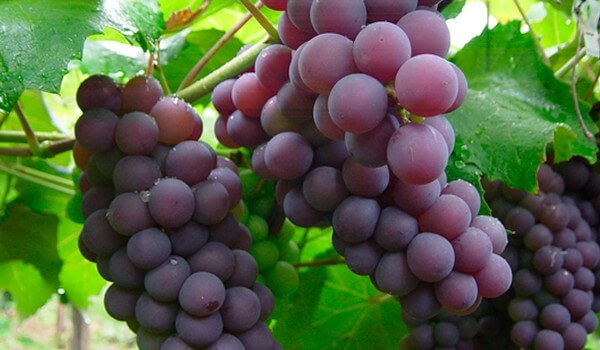
Thanks to their properties, grapes act as a natural laxative, helping the cardiovascular system and reducing bad cholesterol (LDL).
- They contain a variety of acids which are important for the proper functioning of the body.
- Furthermore, grapes contain almost no calories. They help keep the arteries and heart in good condition and improve cognitive functions of the body.
4. Guava
Guava has anti-septic and antihelmintic properties. Because of this, they can help eliminate bacteria, fungi and other infections.
- Therefore, eating guava along with their seeds is an effective remedy for regularizing the normal evacuation of your bowels.
- To make the most of this fruit’s benefits, we recommend that you eat it daily.
5. Orange
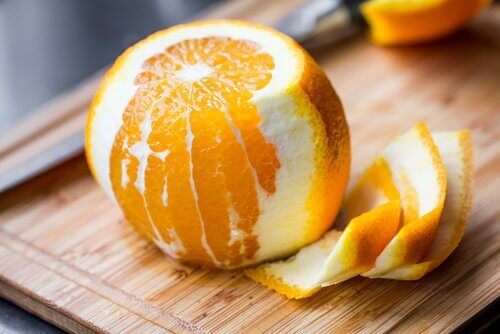
Orange juice is ideal for preventing the accumulation of food residue in the colon and preventing cardiovascular diseases.
- In addition to being a powerful anti-oxidant because it contains vitamin C, it strengthens the immune system, working as an analgesic and healing laxative.
- Oranges provide the body with a good amount of fiber, which improves intestinal transit and helps reduce constipation.
- Furthermore, because it contains citric acid, this fruit has a purifying function, facilitating the digestion of food and stimulating the good performance of the pancreas and liver.
Read also:
8 Medicinal Properties of Orange Peels You May Not Know About
6. Papaya
Papaya nutrients may be useful for relieving constipation. Papaya is about 90% water. This makes it an excellent diuretic and an easy way to combat constipation.
- It also contains high amounts of vitamin C. Therefore, it provides natural defenses for the body and it helps eliminate free radicals with its anti-oxidant effect.
- Sure, it’s not the fruit with most fiber. But, it gives the body enough to improve intestinal transit and maybe even help prevent colon cancer.
7. Apples
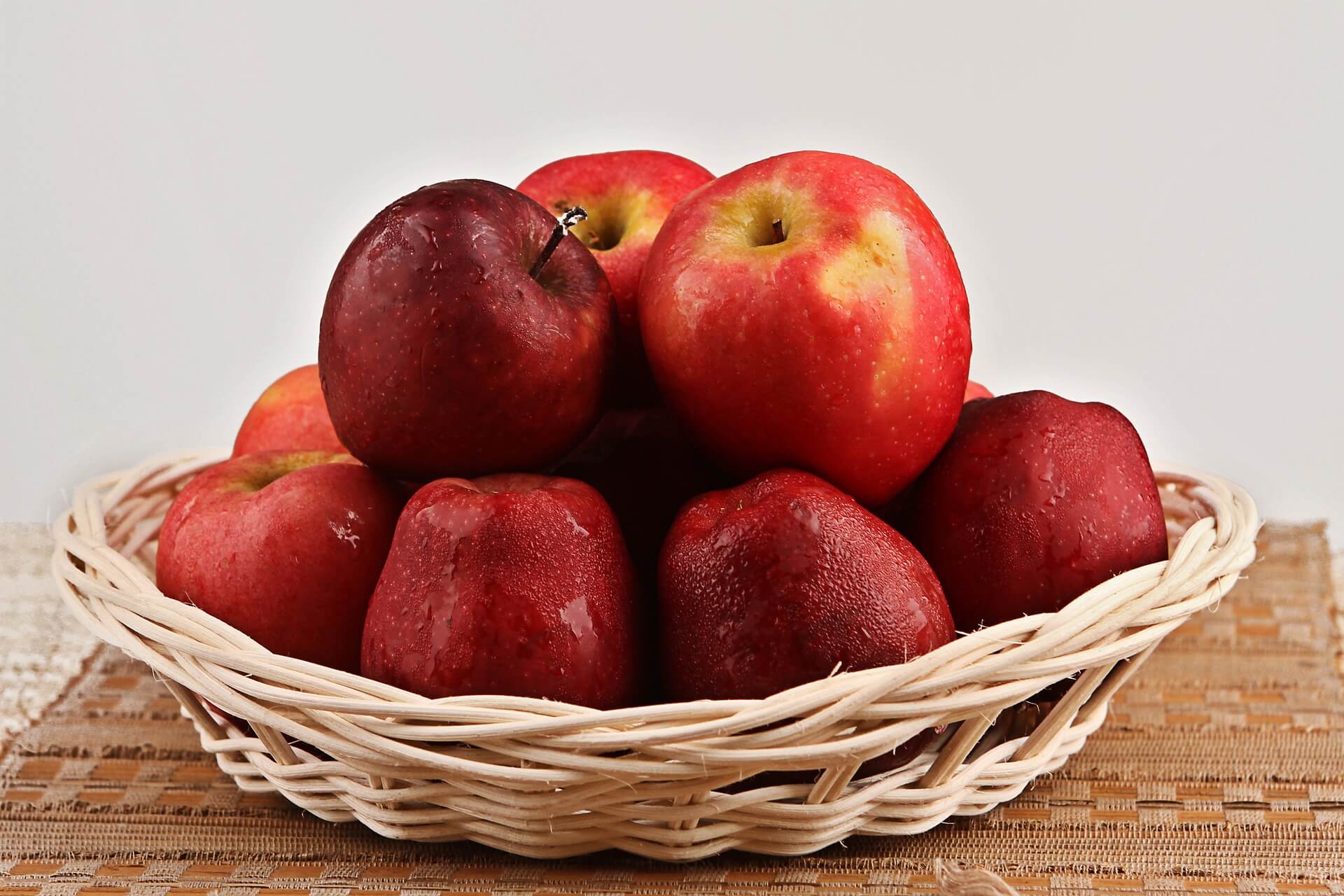
We recommend that you eat this fruit including the peel. Basically, the peel contains fiber and it’s an excellent anti-oxidant.
- It helps lower cholesterol levels. And, it reduces the risk of cardiovascular diseases because of its quercetin content.
- For clear intestines and a healthy body, you should eat three or four apples a day. Be sure to eat it less than an hour before each meal.
8. Melons
Melons are rich in minerals such as potassium, magnesium, calcium zinc, iron, and phosphorus. Because of this, melon is a fruit that we shouldn’t leave out of our daily diet.
- As a result of of its diuretic effects, it’s ideal for preventing fluid retention. Also, it improves kidney function and has a mild laxative effect.
- And its seeds help the expulsion of intestinal worms.
9. Kiwi
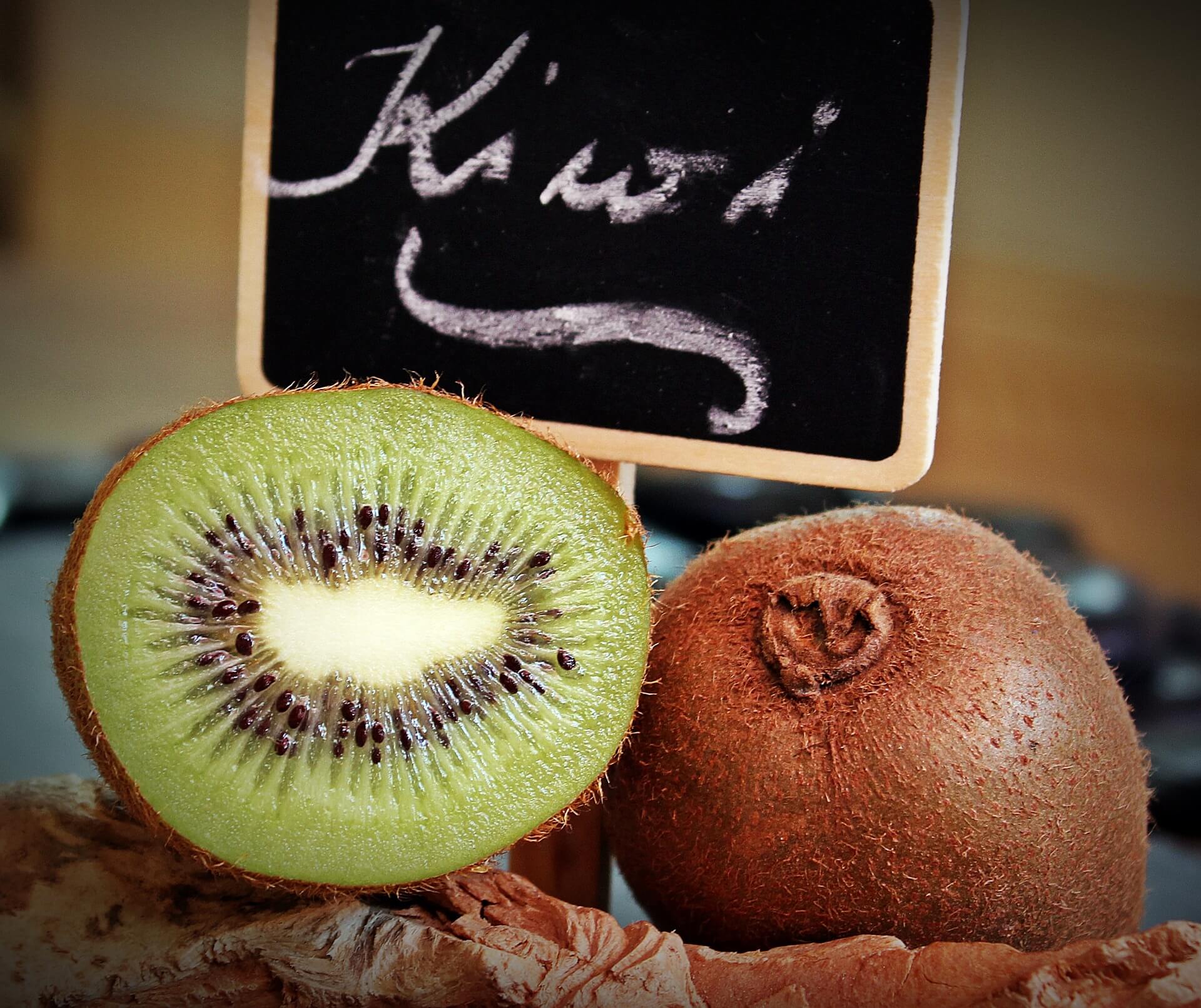
Kiwi is one of the fruits containing the most fiber. It’s also good for constipation because of its seeds. These seeds help speed up intestinal transit.
Read also:
8 Benefits of Kiwis That You Should Know About
General recommendations
First, eat the fruits previously mentioned. Additionally, try these recommendations:
- Try to maintain a low level of stress
- Drink more water
- Avoid excessively large meals
- Exercise regularly
- Eat regularly
- Avoid having milk and dairy products
- Increase your intake of fiber-rich foods
All cited sources were thoroughly reviewed by our team to ensure their quality, reliability, currency, and validity. The bibliography of this article was considered reliable and of academic or scientific accuracy.
- Bae SH. Diets for constipation. Pediatr Gastroenterol Hepatol Nutr. 2014;17(4):203–208. doi:10.5223/pghn.2014.17.4.203
- Chan AO, Leung G, Tong T, Wong NY. Increasing dietary fiber intake in terms of kiwifruit improves constipation in Chinese patients. World J Gastroenterol. 2007;13(35):4771–4775. doi:10.3748/wjg.v13.i35.4771
- Dreher ML. Whole Fruits and Fruit Fiber Emerging Health Effects. Nutrients. 2018;10(12):1833. Published 2018 Nov 28. doi:10.3390/nu10121833
- Yang J, Wang HP, Zhou L, Xu CF. Effect of dietary fiber on constipation: a meta analysis. World J Gastroenterol. 2012;18(48):7378–7383. doi:10.3748/wjg.v18.i48.7378
- Abdullah MM, Gyles CL, Marinangeli CP, Carlberg JG, Jones PJ. Dietary fibre intakes and reduction in functional constipation rates among Canadian adults: a cost-of-illness analysis. Food Nutr Res. 2015;59:28646. Published 2015 Dec 11. doi:10.3402/fnr.v59.28646
This text is provided for informational purposes only and does not replace consultation with a professional. If in doubt, consult your specialist.








